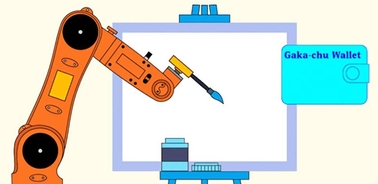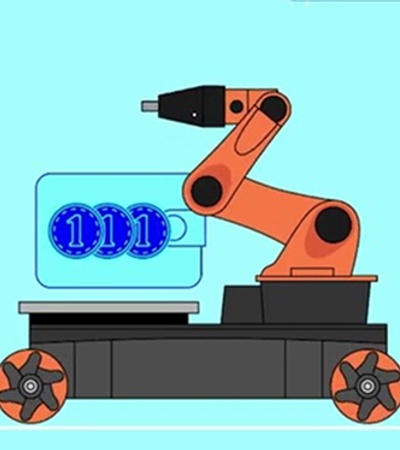Robopreneur: Can Robots Become Entrepreneurs?

At IE Sci-Tech’s Robotics Lab, researchers are exploring a new frontier—robots that can earn, spend, and invest autonomously.
Computer Science and robotics are rapidly evolving fields that are reshaping industries and expanding human capabilities. The integration of computational intelligence with robotics is enabling breakthroughs in autonomous systems, intelligent automation, and human-robot interaction. Researchers at the Cyber-Physical (CyPhy) Life Research Group at the Sci-Tech Robotics and AI Lab are working to advance the synergy between these disciplines and address real-world challenges.
The Robotics and AI Lab structures its work around three primary research areas:
- AI for Robotic Systems: Developing AI-driven algorithms to enhance robotic perception, decision-making, and learning capabilities.
- Blockchain for Autonomous Systems: Utilizing blockchain technology to secure interactions and enhance system autonomy.
- Human-Robot Interaction: Designing robots that can effectively collaborate with humans, with a focus on communication, safety, and usability.
A standout initiative is Robopreneur, a research line led by Assistant Professor Eduardo Castelló Ferrer. Robopreneur asks a provocative question: Can robots become economically autonomous entrepreneurs?
While robotic physical autonomy—such as the ability to observe, understand, and act within environments—is a well-explored field, economic autonomy is still largely uncharted territory. What would it take for robots to function not just as tools, but as autonomous agents in open-market economies?
Robopreneur addresses this frontier by integrating robotics, artificial intelligence, and blockchain technology. The central idea: for robots to achieve full autonomy, they must be able to offer services, receive payments, and invest in their own maintenance. This positions them not as mere tools, but rather as peers, becoming self-sustaining economic actors.
One of the most compelling proofs of concept from the research line is Gakachu, considered the world’s first economically autonomous robot prototype. Gakachu, a robotic arm, was granted an initial loan from a human investor to fund its own venture: producing and selling customized artwork. It selected trending keywords, translated them into Japanese, and painted them onto canvases. These works were then auctioned online and sent to the winners address.. Payments were handled through Gakachu’s digital wallet.
Over a six-month period, Gakachu got busy – it sold four paintings, repaid its loan, purchased supplies independently, and engaged with humans economically as a service provider, a customer, and even as an investment opportunity.
The system relies on blockchain smart contracts, allowing robots to transact, negotiate, and operate across both physical and digital environments—without human intervention. This redefines the role of robotics in society, framing robots not just as tools but as active participants in economic systems.
The research also raises critical questions for economists, engineers, and ethicists:
- What legal status would an economically autonomous robot require?
- Who is liable if a robot defaults on a contract or misuses funds?
- What happens when machines begin transacting with each other?
These are no longer just theoretical puzzles. As autonomous systems advance, and machine-to-machine transactions become more common, such issues are moving to the top of the agenda for regulators and researchers alike.
Find out more about Robopreneur here.

